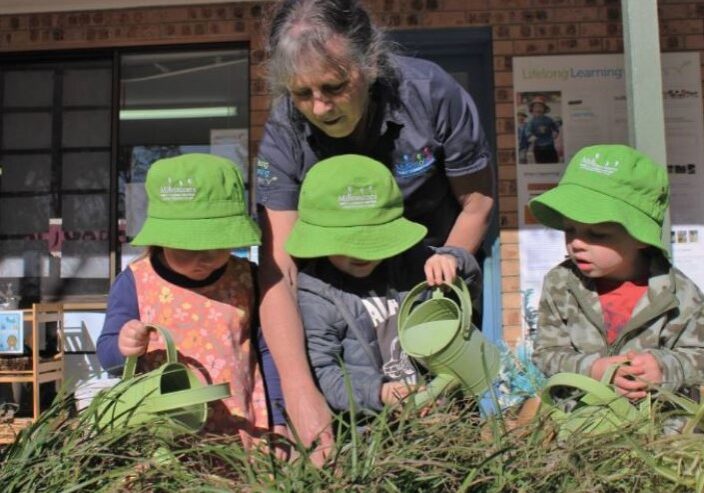Caring for the Environment, Together
At Affinity Education, we believe that caring for the environment begins in childhood. That’s why sustainability is woven into everything we do - from the way we run our centres to the way we educate and inspire young children.
Sustainability is a key principle of both the Early Years Learning Framework (EYLF) and the National Quality Standard (NQS). At Affinity Education, we see it as a shared responsibility - one we model through everyday practices, meaningful experiences, and our commitment to future generations.
By embedding sustainable practices into our learning environments and daily routines, we empower children to build lifelong habits of environmental care and curiosity.

What Sustainability Looks Like in Our Centres
Across our national network, you’ll find sustainability reflected in the big and small choices we make - from reducing waste and reusing materials, to encouraging children to connect with nature and care for living things.
Some of our everyday centre initiatives include:
- Reducing energy and water use with child-led conversations around turning off taps and lights
- Recycling and composting in age-appropriate ways, helping children sort materials and reduce waste
- Using sustainable resources like recycled paper, natural materials, and eco-friendly cleaning products
- Caring for centre gardens, worm farms or veggie patches (where available), with children planting, watering and harvesting seasonal produce
- Spending more time outdoors to foster a connection with the natural world and encourage hands-on exploration
Sustainability in the Lifelong Learning Curriculum
Our exclusive Lifelong Learning Curriculum supports children’s understanding of the world - including how we can take care of it. Through guided play, nature-based experiences, and simple routines, our educators gently introduce concepts like environmental care, community responsibility, and sustainable choices.
Children explore sustainability through activities such as:
- Gardening, planting, and harvesting herbs, fruit and vegetables
- Sorting recycling and learning where materials go after we use them
- Caring for pets, plants and natural environments
- Participating in Environmental Awareness Days like Earth Day, National Tree Day and World Environment Day
These hands-on experiences help children feel connected to the world around them - and teach them that their actions matter.
Respecting Country and Learning from First Nations Perspectives
Our curriculum also incorporates First Nations perspectives on caring for Country, helping children understand and respect the knowledge, traditions and sustainable practices of Aboriginal and Torres Strait Islander peoples.
This learning supports children to develop a deep sense of belonging, respect for nature, and understanding of our shared responsibility to protect it.
As part of our commitment to reconciliation, we’re proud to walk alongside Aboriginal and Torres Strait Islander peoples. Learn more about our approach and priorities in our Reconciliation Action Plan.
Empowering a Greener Generation
At Affinity Education, we’re committed to nurturing not just school readiness, but planet readiness - helping every child grow into a thoughtful, responsible citizen of the world.
Our educators play a vital role in modelling sustainable practices and sparking meaningful conversations. Whether it’s through sorting lunchbox rubbish, tending a garden, or celebrating an environmental awareness day, every small moment helps build a lifelong foundation of care.
Together, we’re raising a generation that doesn’t just learn about sustainability - they live it.
